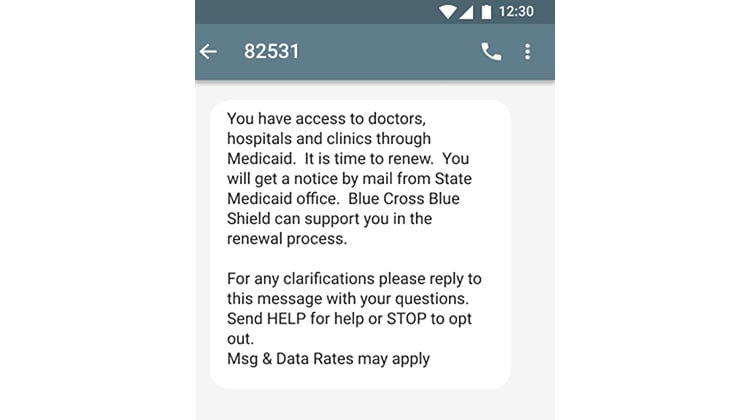Can we use behavioral psychology concepts to provoke action? Managed care organizations face a daunting challenge in getting members to complete tasks - be it wellness visits or renewing eligibility. It is not from lack of trying. Multiple reminders are sent through mailers, SMS, and calls. What gives?
Usually, when we want someone to change, we push them in the direction we want them to go. While this approach is natural, it is ineffective. Kurt Lewin's "force field analysis" suggests instead of pushing someone to change, understanding what’s in the way and eliminating that restraining force will facilitate change. While profoundly non-intuitive, this approach has been shown to work in multiple studies. Instead of constant reminders for a wellness visit, checking if the member has challenges visiting the physician might surface the lack of transportation options for the member and organizations can address this with some proactive steps like shown below.

Loss aversion suggests that for people the pain of losing is psychologically twice as powerful as the pleasure of gaining. This concept explains why penalty frames are more effective than rewarding frames in getting people to act. Reminding members that they will lose access to hospitals, doctors, and medicines if they did not re-certify is a practical use of loss aversion.

Thinking from a member’s perspective on what's holding them back and removing those restraining forces might be an effective way to impact the outcomes on health behaviors leading to better patient engagement. For insights on how a software solution can help achieve this, visit our HealConnect page.
No Comments Yet
Let us know what you think